Ho Chi Minh City Group has just announced that orders will be available until the end of the year, at the same time Thuan Thien Shoe Company in District 12 received news that about 500 workers have resigned to withdraw their insurance.
Due to the general impact, since March this year, orders at Thuan Thien factory have decreased; workers only work 8 hours, with Saturdays off. The board of directors still pays full salaries to support workers, keeping them waiting for production to recover.
However, when the parent company reported that it had found a new customer, signing more than three million pairs of shoes for the end of the year, a series of employees wanted to quit. Initially, only a few people applied, but by early October, departments reported about 500 people asking to quit, falling during the peak production time of the factory.
The group's plan is that the factory in District 12 alone must produce 250,000-280,000 pairs of shoes each month. Mr. Nguyen Quang Toan, in charge of human resources at Thuan Thien Company, said that to ensure progress, the unit needs 2,500 workers, but currently has only 2,000. Most of the people who quit have been working for 10-18 years. "The workers want to quit to withdraw their insurance at once before the law takes effect," Mr. Toan said.
The company said that the number of workers quitting their jobs increased in July when information about the one-time subsidy plan in the draft Law on Social Insurance was widely consulted. Accordingly, plan one, only those who participated before the law took effect (expected before July 1, 2025) could withdraw. Those who paid after this time could not withdraw, except those who were old enough to retire but had not contributed enough years to receive pension; settled abroad; or had life-threatening illnesses.
Option two, regardless of the payment period, all workers who have paid for less than 20 years, and have not participated in the system for one year, can withdraw, but not more than 50% of the total time contributed to the Pension and Death Fund. The remaining years are reserved to enjoy the regime. This option does not limit the number of times workers can withdraw.
"We try every way to retain them because one skilled worker is worth three new ones. If staff continuously quit, the company will fall into difficulty," said Mr. Toan.
About 5 km from Thuan Thien shoe factory, Viet An Garment Company fell into a similar situation when year-end orders started to come back, but workers were upset and wanted to quit to withdraw their social insurance at once.
The factory representative said that due to the economic difficulties, the board of directors accepts orders from loss to break even. The company aims not to make a profit, only needs workers to have jobs and income to stay at the company waiting for recovery. But what the company does not want is workers wanting to quit to withdraw insurance. Every month, several dozen people apply, most of them long-term workers.
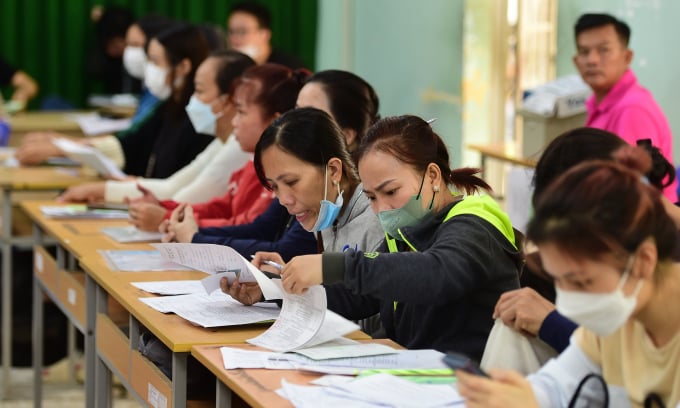
People complete unemployment support procedures at the Ho Chi Minh City Employment Service Center on July 26. Photo: Thanh Tung
Factories affected in production due to workers submitting resignations pending withdrawal of insurance have also been mentioned by localities such as Long An and Dong Nai. At a recent workshop to comment on the draft Law on Social Insurance, Ms. Bui Thi Ngoc Trang, Chairwoman of the Long An Industrial Parks Trade Union, said that there were enterprises with more than 5,000 employees, but more than half submitted resignations.
Mr. Vu Ngoc Ha, Director of Dong Nai Trade Union Legal Consulting Center, also mentioned a similar situation when many workers submitted resignations despite the fact that the factory had stable orders and production.
To convince workers to stay, factories invite union officials and relevant agencies to provide consultation. Ms. Nguyen Phan Bao Khuyen, an official at the Legal Consulting Center (HCMC Labor Federation), said that those who have jobs and stable incomes but quit to withdraw insurance are not doing so because of difficulties. They hear a lot of information on social media and then misunderstand it, causing psychological turmoil.
"I just ask questions for workers to answer and then decide," Ms. Khuyen said. For example, workers say that withdrawing money to invest in business or depositing it in the bank is more profitable than using insurance. However, when asked if they have seen anyone or any colleagues do that or have spent all the money they have withdrawn, people cannot answer. Workers who complain about low pensions and difficulty living when asked what they are preparing for their old age, most remain silent.
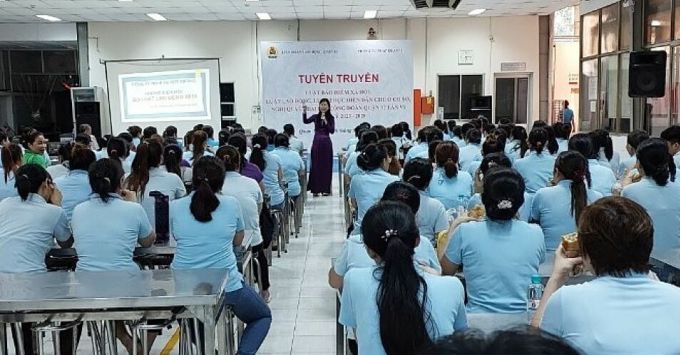
Ms. Bao Khuyen in a propaganda session on social insurance policy for factory workers of the Ho Chi Minh City Legal Consulting Center. Photo: An Phuong
Mr. Nguyen Quang Toan said that after receiving advice from union officials, the massive resignations have slowed down, and some have withdrawn their applications. This has not helped the board of directors to stop worrying because workers' psychology is easily influenced. In addition to continuing to promote, the company has planned to recruit replacements with more flexible criteria but higher salaries. The factory union has a mutual fund to help workers in difficulty borrow without interest...
"We are doing everything we can to ensure production, but to stabilize, workers must understand that having a job is important right now. The insurance that has not been withdrawn is still there to take care of old age, it will not be lost," said Mr. Toan.
According to Tran Thi Dieu Thuy, President of the Ho Chi Minh City Labor Federation, since the end of last year, when orders decreased, many businesses planned to cut workers. Starting from the third quarter of this year, textile and footwear companies began to recover, factories that had previously planned to reduce workers have now withdrawn, recruiting people for production. At this time, factories are facing a situation where workers voluntarily quit to wait for insurance withdrawal.
"The habit of withdrawing insurance has existed for so long that any change will create an impact. At this time, businesses with orders are affected," Ms. Thuy said. To reduce the shock, the immediate solution is for the functional sector to connect with workers to help factories that are lacking workers.
In addition, according to Ms. Thuy, at this stage, propaganda for workers is very important. Responsibility is not only limited to enterprises but needs to be extended to social networks, media and related state agencies in a vivid and easy-to-understand form. In particular, the policy needs to clarify the difference in benefits and regimes between those who have been attached to the social security system for a long time and those who have contributed for a short time.
Le Tuyet
Source link














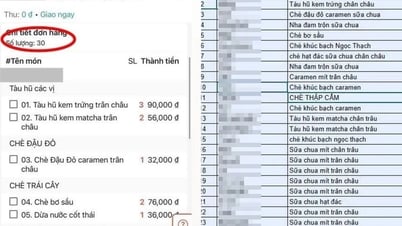
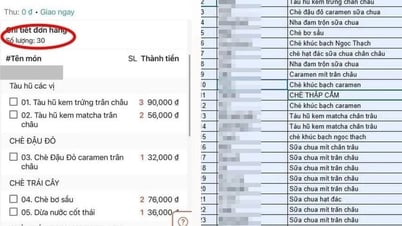
































































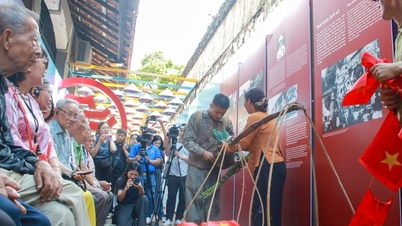






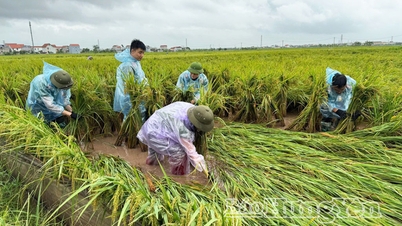

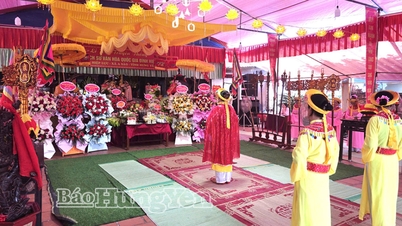
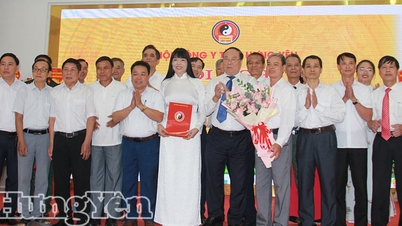













Comment (0)